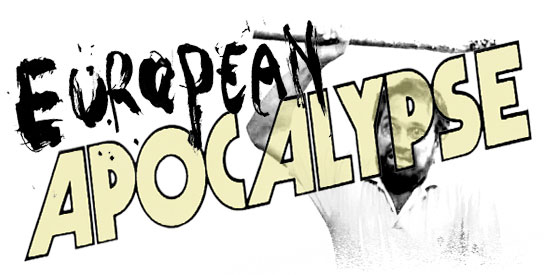
With the Blind Dead series, Amando de Ossorio created one of the most talked about horror franchises to come out of Spain. Tombs of the Blind Dead, the first entry, stands among the best that 1970s horror had to offer – and I’m not limiting that to Europe. Tombs of the Blind Dead is also a great entry in the zombie genre, but, despite the love it receives from horror fanatics, its achievements are sadly drowned out by the more famous living dead films, most notably anything with Romero’s name attached to it.
TOMBS OF THE BLIND DEAD
aka: La noche del terror ciego
Spain, 1972, Amando de Ossorio
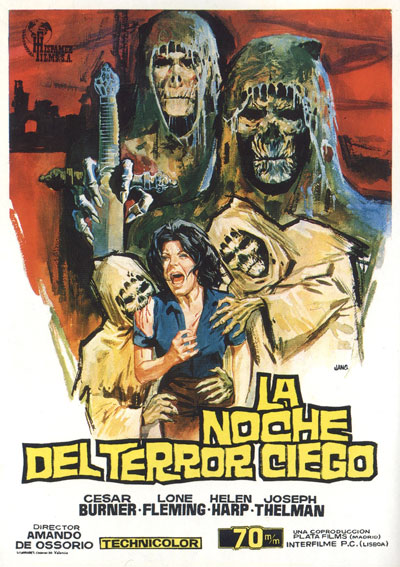
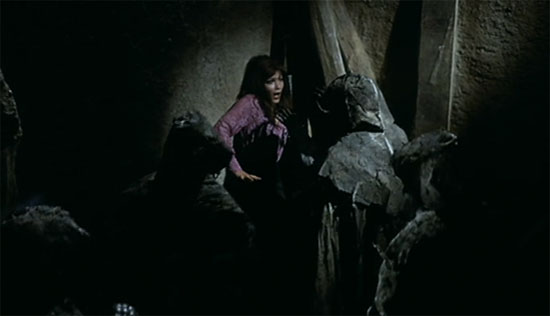
Undead knights stalk a potential victim
There is no other living dead film quite like Tombs of the Blind Dead – well, asides from the other Blind Dead films. Tombs of the Blind Dead has more in common with a ghost film than a zombie film. In fact, it’s a bit of a stretch to refer to the knights as zombies. Their ghostly appearance, the way they are permanently shot in slow motion with eerie echoed sounds and their horses that appear from nowhere all suggest they are supernatural apparitions rather than physical beings. And while their method of murder – group biting – seems in tune with zombie mythology, they do not devour their victims in typical living dead fashion. The angle of Satanism is also an interesting addition, creating a living dead that is not mindlessly driven by instinct.
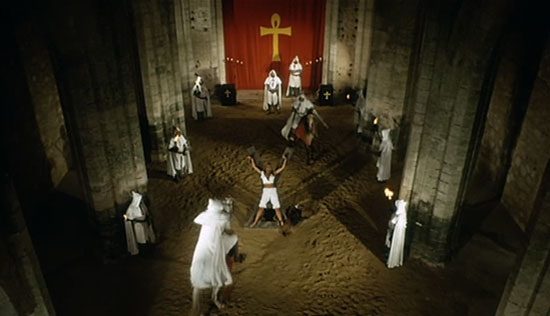
A satanic sacrifice
The design and settings of Tombs of the Blind Dead also give the film a quality that moves beyond your average zombie flick. The costumes of the dead knights are impressive to say the least and, if you ignore the goofy puppet hands, they are genuinely frightening. The medieval ruins that function as the film’s main location has a life of its own and an authenticity that could only be found in a film shot in Europe. The sparse country setting also adds to the dread that constantly emanates from the film.
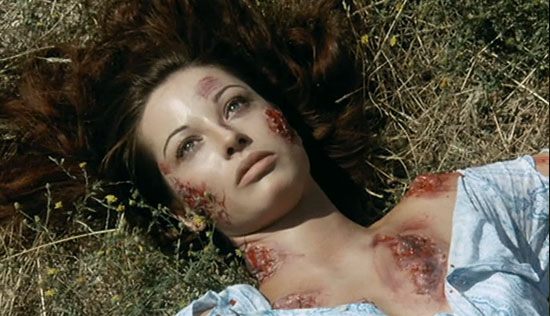
A corpse in the countryside
While the lead characters aren’t anything special, there is a fantastic attention to detail with certain characters. We are given a creepy morgue attendant to top all creepy morgue attendants. When he’s not giggling about the death of an innocent girl, he’s “playing” with a frog or taking peeks at naked (and dead) women. Then there’s Pedro, a character lazily introduced in the film’s final act. For no real reason, Pedro accompanies our dull heroes on their mission. Luckily, his ridiculous characterization and ever-growing sweat patches wash away the confusion of his inclusion. Even the first victim of the zombie knights, who at first appears to be the film’s protagonist, is given a bizarre back-story involving lesbianism. None of these character quirks really go anywhere, but their presence helps to create the bizarre world of Tombs of the Blind Dead.
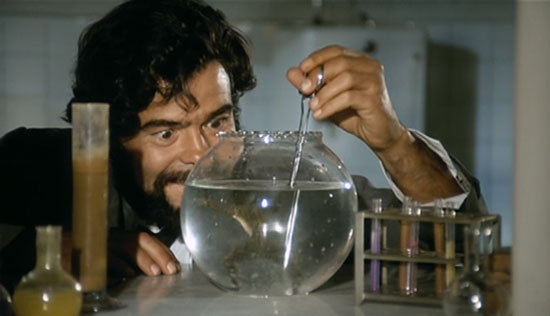
Frog games
What really makes Tombs of the Blind Dead work is the balancing act it plays between atmosphere and action. For the most part, Tombs of the Blind Dead is a slow-burning film with a thick atmosphere of gothic dread. But director, Amando de Ossorio, also knows when to throw some blood on the screen. The balance between atmosphere and action matches the film’s balance between class and exploitation. Tombs of the Blind Dead is mostly a restrained affair punctuated with moments of truly shocking violence. The film is not exactly gory, but certain moments – like a little girl having her mother’s blood splattered over her face – pack a punch.
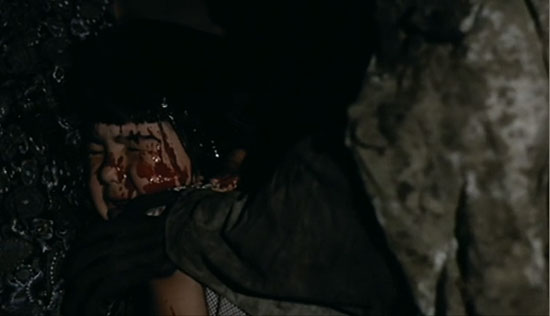
A disturbing moment
Tombs of the Blind Dead is a must-see for anyone even remotely interested in the horror genre. And if you like your horror with a Euro flavour… well, it doesn’t get much better than this. The zombie genre has been overdone of late and has become bloated with irony and failed and forced attempts to do something new. For a unique living dead film that successfully breaks the mould, you need look no further than Tombs of the Blind Dead!




